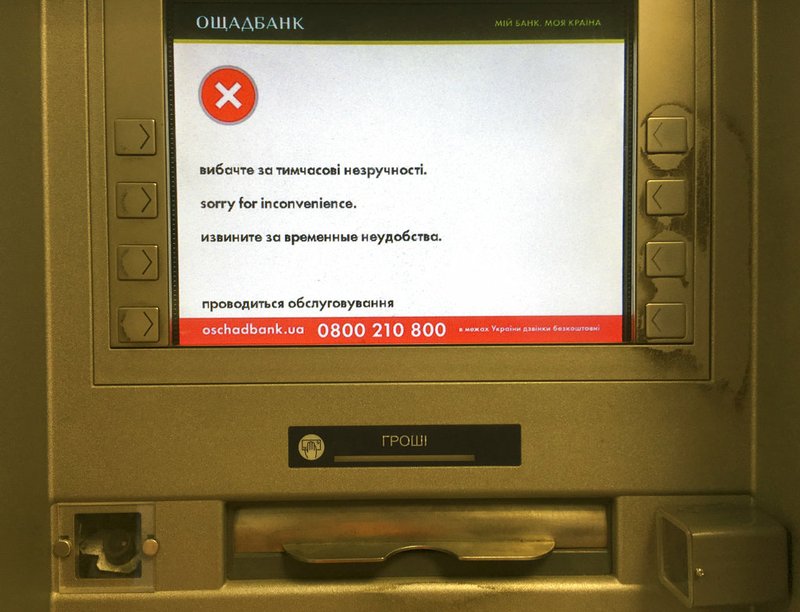PARIS — Companies and governments around the world Wednesday counted the cost of a software epidemic that has disrupted ports, hospitals, and banks. Ukraine, which was hardest hit and where the attack likely originated, said it had secured critical state assets — though everyday life remained affected, with cash machines out of order.
As the cyberattack's intensity around the world waned on its second day, the Ukrainian Cabinet said that "all strategic assets, including those involved in protecting state security, are working normally."
But that still left a large number of non-strategic assets — including dozens of banks and other institutions — fighting to get back online. Cash machines in Kiev seen by an Associated Press photographer were still out of order Wednesday, and Ukrainian news reports said that flight information at the city's Boryspil airport was being provided in manual mode.
A local cybersecurity expert discounted the Ukrainian government's assurances.
"Obviously they don't control the situation," Victor Zhora of Infosafe in Kiev told the AP.
Others outside Ukraine were struggling, too. At India's largest container port, one of the terminals was idled by the malicious software, which goes by a variety of names including ExPetr. M.K. Sirkar, a manager at the Jawaharlal Nehru Port Trust in Mumbai, said that no containers could be loaded or unloaded Wednesday at the terminal operated by A.P. Moller-Maersk, the Denmark-based shipping giant.
In a statement, Moller-Maersk acknowledged that its APM Terminals had been "impacted in a number of ports" and that an undisclosed number of systems were shut down "to contain the issue." The company declined to provide further detail or make an official available for an interview.
At the very least, thousands of computers worldwide have been struck by the malware, according to preliminary accounts published by cybersecurity firms, although most of the damage remains hidden away in corporate offices and industrial parks. Some names have trickled into the public domain as the disruption becomes obvious.
In Pennsylvania, lab and diagnostic services were closed at the satellite offices of the Heritage Valley Health System, for example. In Tasmania, an Australian official said a Cadbury chocolate factory had stopped production after computers there crashed.
Other organizations affected include U.S. drugmaker Merck, food and drinks company Mondelez International, global law firm DLA Piper, and London-based advertising group WPP.
Read Thursday's Arkansas Democrat-Gazette for full details.
